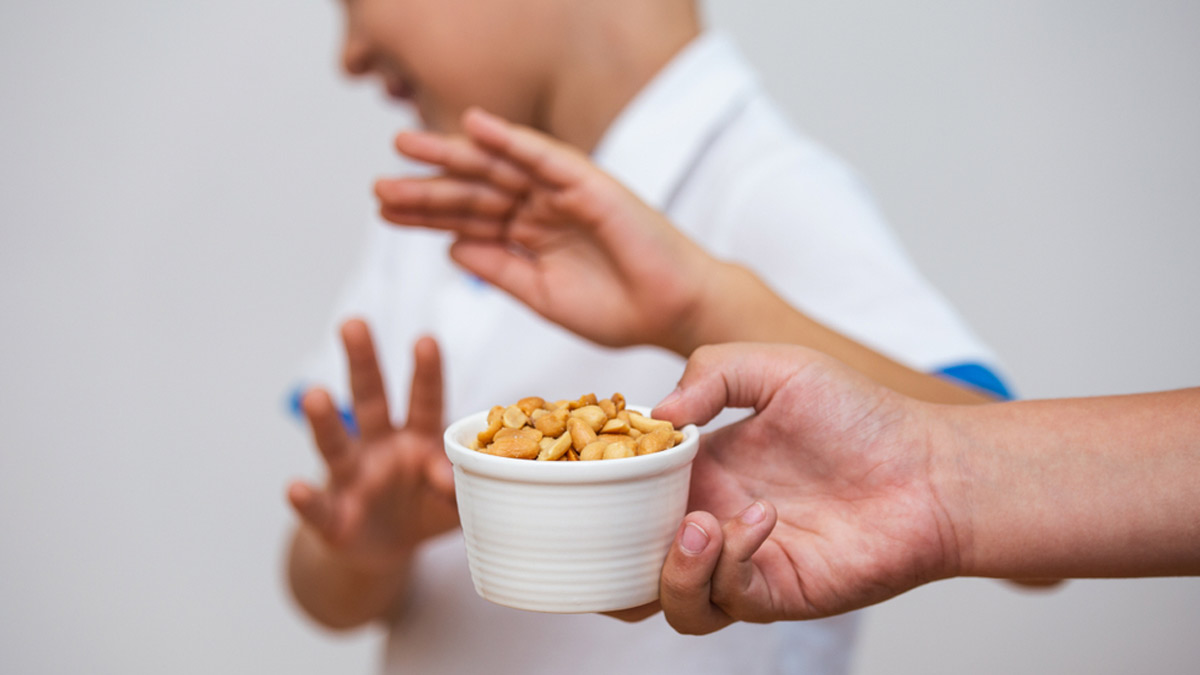
People can be allergic to a lot of things. Pollen, dust, some types of fabrics, and much more. One of the most common allergens among these are foods like nuts, milk, or prawns. Like most hereditary health issues, allergies are also believed to run in families. However, there have been cases where people have reported developing a food allergy later in their lives, instead of it being present since birth. This begs the question, are food allergies often conditioned during infancy, and if yes, can food allergies be prevented?
Table of Content:-
To know if this is possible and ways to manage food allergies in babies, the OnlyMyHealth team spoke to Dr Jagdish Kathwate, Consultant Neonatologist & Paediatrician, Motherhood Hospital, Kharadi, Pune and Chaitali Rajendra Rane, Clinical Dietician, PD Hinduja Hospital, Khar.
What Causes Food Allergies In Babies?
Dr Kathwate suggested that the surge in food allergies could be associated with dietary habits like increased intake of processed foods. He said, “While genetics can raise the chances of allergies, repeated exposure to certain foods in the early stages can also invite allergies.”

Common Food Allergens To Avoid
Beyond processed food, Dr Kathwate elucidated food allergens that are most commonly seen in babies. He listed some common food allergens that can trigger allergic reactions in babies and affect their health:
- Wheat
- Soy
- Cow's milk
- Dairy
- Honey and peanuts
- Eggs
- Fish and shellfish
Food Allergy Symptoms
The list of common food allergens does not end there. We can be allergic to all types of food. That is why it is important to know how to identify that your child is allergic to a specific food item. The most common signs that your baby may be allergic to a certain food are:
- Skin reactions
- Rashes
- Hives
- Redness around the mouth or other parts of the body that touched the food
- Diarrhoea
- Vomiting
- Stomach Ache
- Difficulty breathing
- Wheezing
- Swelling of the face
Also Read: Toddler Food Allergy: How To Know Your Toddler Is Allergic To Certain Foods

How To Prevent Food Allergies?
To prevent food allergies in at-risk infants, Rane recommended, "Although older guidelines recommended avoiding common allergenic foods, newer guidelines no longer recommend avoiding such foods beyond four to six months of age."
She said that the current advice is to introduce allergenic foods at four to six months of age.
Dr Kathwate corroborated this by saying, "Exposure to a variety of foods during the weaning process can help develop tolerance when it comes to the baby." He suggested a few tips to make sure newborns do not consume any common allergenic foods:
- Parents need to be vigilant about reading labels, and nutritional value, and avoiding processed or allergen-heavy foods.
- Stay in touch with the doctor to know the baby's health status.
- Breastfeed the baby regularly as the antibodies in it help boost the baby's immune system, lowering the risk of allergies and infections.
Rane recommended, "Once highly allergenic foods are introduced to the baby, regular exposure is important to build their tolerance. Babies should eat these foods on a regular basis."
Also Read: Food Allergy and Food Intolerance Are Different, Know In Detail
Suspect Your Child Has A Food Allergy? Here’s What You Should Do
Both experts concluded that parents should first consult a paediatrician or allergist for the right diagnosis if they suspect their baby has a food allergy. Infact it is better to consult a paediatrician before introducing allergenic foods to toddlers. Maintain a detailed record of the baby's symptoms and come up with an emergency action plan in case of severe allergic reactions and don't delay treatment at any cost. It is imperative for parents to not ignore the allergy symptoms and educate themselves about the sources of allergens in processed foods.
Also watch this video
How we keep this article up to date:
We work with experts and keep a close eye on the latest in health and wellness. Whenever there is a new research or helpful information, we update our articles with accurate and useful advice.
Current Version
